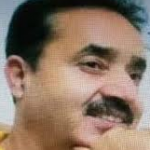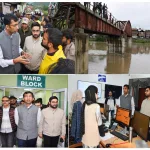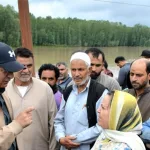I recently came across Iqbal Ahmad’s deeply reflective writeup, “What Do Bones Tell Us About the Living?”. In it, Iqbal Ahmad draws from his experiences as an archaeologist, where skeletal remains silently narrate the stories of lives once lived. These bones, he reminds us, are not just remnants of the pastthey are quiet witnesses to joys, struggles, and abrupt endings.
One incident in his essay struck me with particular force: the sudden death of a teenage schoolgirl, taken by a heart attack while doing her homework. In a heartbeat, she was gone. The road where she once walked to school felt emptier, quieterits silence more deafening than any noise. Ahmad observes that such incidents unfold around us with disquieting frequency. “Thousands lose their lives to sudden deaths… accidents…” he writes, capturing in simple words the heavy truth that death spares no age.
Life is Fragile Handle with Care
The inevitability of death is not new to any of us, but what makes some losses harder to bear is their avoidable nature. Every day, we see headlines about young people losing their livesnot because nature demanded it, but because of human mistakes. A moment’s distraction behind the wheel, a decision to overspeed, a failure to follow traffic rules, or simply the arrogance of thinking “it won’t happen to me”all of these can transform a vibrant life into a cold statistic.
I have personally witnessed the grief of families torn apart by road accidents. Bright students, ambitious professionals, loving friends all gone in the blink of an eye because someone was careless, impatient, or inattentive. Unlike an illness that creeps in silently, such tragedies are like sudden storms that tear everything apart without warning. And the worst part? They are often preventable.
Every Life is a Universe
We often underestimate the value of a single life. But if you look closely, each person is an entire universeof dreams, relationships, and possibilities. The death of one young person means the loss of countless unwritten chapters: the career they might have built, the people they might have helped, the art they might have created, the family they might have raised.
Iqbal Ahmad’s essay beautifully reminds us that death gives weight to lifeit forces us to pause and realize that our days are numbered. But if we truly understood this, wouldn’t we treat every moment, with more care? Wouldn’t we handle lifeour own and others’with the same gentle caution we use when holding something fragile and irreplaceable?
Driving: A Responsibility, Not a Right
One of the clearest areas where “careful handling” can save lives is driving. Roads are not personal race tracks; they are shared spaces where every driver holds the power to protect or destroy lives. A single second of carelessnesschecking a phone, running a red light, overtaking recklesslycan change the fate of strangers forever.
We need to change how we see driving. It is not just a skill; it is a daily moral responsibility. Every time you start your vehicle, you are making an unspoken promise: to safeguard your own life and the lives of those around you.
Choosing Caution over Regret
The loss of life especially of the young should not just make us sad; it should make us act. If we allow our grief to fade without change, we dishonor the memories of those we’ve lost. By embracing carefulness in daily lifeslowing down when we drive, refusing to multitask behind the wheel, following safety ruleswe honor them in the best way possible.
Let’s also remember that careful handling of life extends beyond roads. It’s in how we treat our health, how we manage our anger, how we react in moments of stress, and how we respect the fragility of the people around us.
A Collective Call to Value Life
Drawing from Iqbal Ahmad’s reflections, I believe our communities must embrace a renewed respect for life. Let us:
- Be vigilant whether on the road, at work, or at homerecognizing that carelessness can cause irreversible harm.
- Promote awareness through education campaigns on road safety, first aid, and preventive healthcare.
- Live mindfully making choices that protect rather than endanger.
- Speak up when we see unsafe behavior, knowing that prevention is an act of love.
- If death gives life its weight, then awareness and carefulness give life its length and quality.
Iqbal Ahmad’s essay reminds us that the bones of the past are more than archaeological remainsthey are lessons, silent teachers urging us to live with awareness. The young lives we lose today, especially to avoidable mistakes, are tragedies that can be prevented if we choose vigilance over negligence, and caution over regret.
Life is fragile, but in our hands lies the power to protect it. Let us handle it as we would the most precious thing we ownbecause, in truth, it is.
(Author is a Library Futurist, Social Innovator from Akipora Kulgam. Feedback: [email protected])








